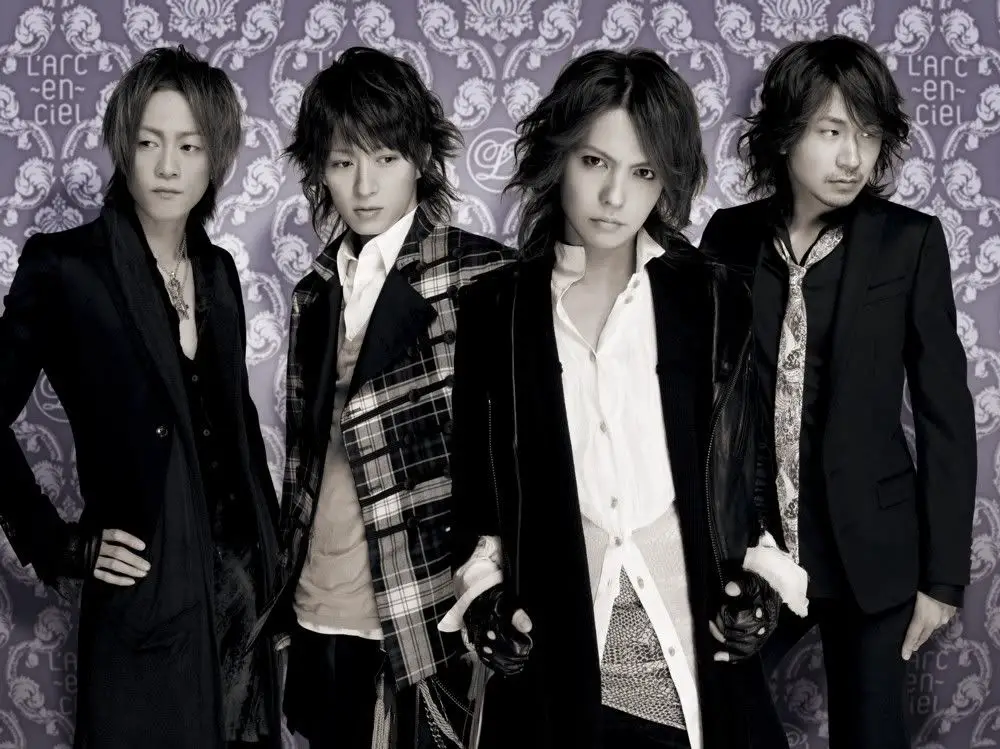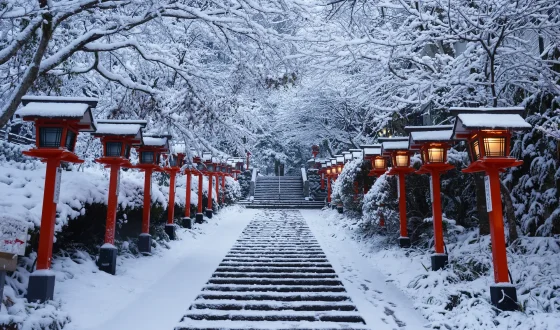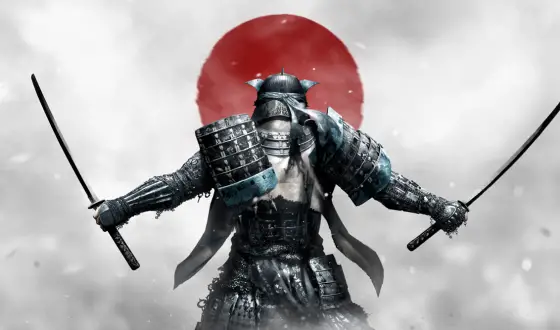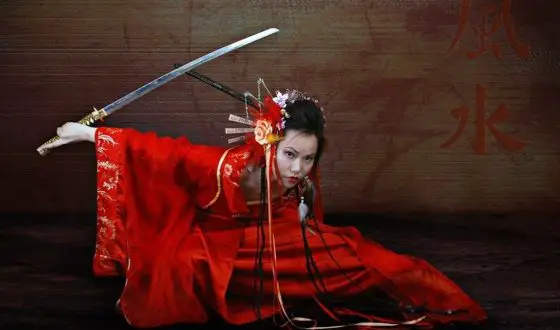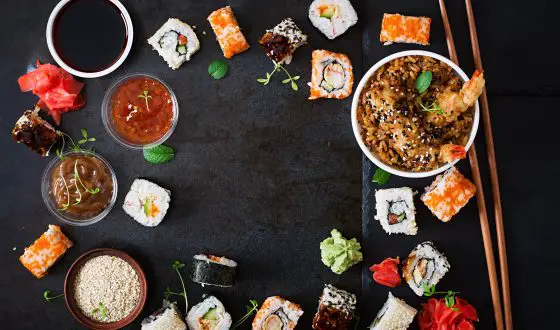Top 20 Best Japanese Rock Bands You Shouldn’t Miss
What is your first impression when thinking about Japanese music industry? Folk music, Japanese blues aka Enka or traditional instruments? They are all the correct answers, but it will be a huge mistake if Japanese rock bands are not included in the list.
Formed in the 1960s, Japanese rock music was influenced by a number of Western rock musicians such as The Beatles, Bob Dylan and the Rolling Stones. Among them, John Lennon was probably the most popular and inspirational to the first generations of Japanese rock bands. From that time onwards, both Japanese solo singers and rock groups have started their careers constantly. Nowadays, this industry is an indispensable part when mentioning Japanese music. With many notable names, Japanese rock bands not only gain success in Japan particularly but also become famous internationally.
Here are the 20 greatest Japanese rock bands of all time
X-Japan
Genres: Rock, heavy metal, speed metal
Debut year: 1982
Members: Yoshiki, Toshi, Pata, Heath, Sugizo

X-Japan (Source: spiderum.com)
Styles and influences
Talking about Japanese rock music history, the name “X-Japan” will appear immediately in many rock fans’ minds. X-Japan was first formed by Yoshiki and Toshi in Chiba, when they were just 11 years old. The other members joined in the later years. They rose to fame after their first album, Vanishing Vision was released. Most of their songs are driven by heavy metal music, combined with speed/power metal. Though later, their music is supplemented with the elements of symphony, ballads and orchestrated passages. All X-Japan’s albums are breakthrough successes, with “Art of Life” often called “rare masterpiece”. Aside from the music legacy, X-Japan was considered one of the founders of visual key (a movement developed by Japanese musicians, similar to Western glam rock). Yoshiki, the bandleader, once said, Visual key was freedom about describing themselves, a freedom to express themselves. Their influence is so huge that countless fans cosplay their images in every Visual key show.
Albums: Vanishing Vision, Blue Blood, Dahlia, Art of Life
Must-listen songs: Kurena, Tears, Scars
SEE MORE:
- An intro to Japanese traditional music
- What do you need to know about traditional Japanese instruments?
L’Arc~en~Ciel
Genres: Alternative rock, pop rock, post-punk
Debut year: 1991
Members: hyde, tetsuya, ken, yukihiro

L’Arc~en~Ciel (Source: thejakartapost.com)
Styles and influences
Often called by fans as L’Arc or Laruku, L’Arc~en~Ciel is probably the second most well-known rock bands following X-Japan. L’Arc~en~Ciel was formed in Osaka in 1991 and released their debut album, Dune, which quickly ranked number one on the Oricon chart. The band’s name means “Rainbow” in French. Just like the name, L’Arc~en~Ciel has such a wide variety of rock, from hard rock, post punk to almost pop ones. With the unique melody and talents, it is reported that 40 million records of the bands were sold, making them the first Japanese group to perform in Madison Square Garden.
Albums: Heart, Vamps, Twenity
Must-listen songs: Winter Fall, Ready Steady Go, Driver’s High
B’z
Genres: Hard rock, pop rock, blues rock
Debut year: 1988
Members: Tak Matsumoto, Koshi Inaba

B’z (Source: jame-world.com)
Styles and influences
In the late 1980s, Tak Matsumoto, an extremely busy guitarist, wanted to start a band. And the search for band members, particularly a singer began. Eventually, Tak found the demo tape of Koshi Inaba and B’z was founded later with only 2 members: Tak as guitarist and Koshi, vocalist. Their first album, the self-titled, B’z was released in 1988 as a product of an experimental sound, which is very different from their later famous hard rock sound.
Unlike many other Japanese bands at that time, B’z chose to focus on recording, improving their music quality rather than performing live immediately after the release of their debut album. This contributed to B’z huge success later as the best-selling music artist in Japan and one of the best-selling bands in the world with more than 100 million records globally. B’z experimented their songs with individual styles ranging from hard rock, dance rock, blues to even J-pop. In 2007, B’z became the first Asian music group to get their signatures and handprints put up in Hollywood’s RockWalk.
Albums: Wicked Beat, Big Machine, B’z The Best “Ultra Pleasure”
Must-listen songs: Ichibu to Zenbu/Dive, Kon’ya Tsuki no Mieru Oka ni, Home
Luna Sea
Genres: Progressive rock, alternative rock, hard rock
Debut year: 1986
Members: J, Inoran, Sugizo, Shinya, Ryuichi

Luna Sea (Source: ib.eplus.jp)
Styles and influences
In 1986, two high school friends, Jun Onose (J) and Kiyonobu Inoue (Inoran) formed a band named in Kanagawa. Then, they recruited drummer Shinya Yamada, lead guitar Sugizo and vocalist Ryuichi. The band released their first album, the self-titled Luna Sea in 1991. Luna Sea’s music embraced diverse styles like punk/post-punk, gothic rock, alternative rock and ballad. The violin which was played by Sugizo also appeared in some of the songs. Because of the make-up and costumes they used in their early career, Luna Sea became widespread popular and was considered as one of the pioneers of the visual key movement. Many acts cited them as being influenced by Luna Sea such as: Mucc, The Gazette,.. In the end of 2019, the band’s tenth album Cross became their first top on Billboard Japan.
Albums: Luna Sea, Image, Eden
Must-listen songs: Believe, In My Dream (With Shiver), True Blue
Maximum the Hormone
Genres: Avant-garde metal, hardcore punk, alternative metal
Debut year: 1998
Members: Daisuke-han, Nao, Maximum the Ryo-kun, Ue-chan

Maximum the Hormone (Source: japanvibe.net)
Styles and influences
Maximum the Hormone has been formed since 1999 in Tokyo by vocalist Daisuke-han, guitarist Maximum the Ryo-kun, drummer Nao and bassist Ue-chan. What is special about them is that each member, except Ue-chan, sings lead vocals within a song alternatively. Their music is famous for alternative metal style which is described as unusual, experimental, extremely heavy and aggressive but funny as well. When listening to their songs, your mood shifts dramatically as you can experience a spectrum of feelings: dark to ironic, serious to humorous during the length of a song. Their reputation becomes more and more popular after their song “Zetsubō Billy” are chosen as the music themes for well-known manga series “Death Note”
Albums: Mimi Kajiru, Bu-ikikaesu, Yoshū Fukushū
Must-listen songs: Niku Cup, Koi no Mega Lover, Greatest the Hits 2011
Mucc
Genres: Alternative metal, nu metal, industrial metal
Debut year: 1997
Members: Tatsurou, Miya, Satochi, Yukke

Mucc (Source: jame-world.com)
Styles and influences
Mucc, which is widely known by the nickname 69, has been active since 1997 with four members: lead vocals Tatsuro, guitarist Miya, drummer Satochi and bassist Yukke. They released their first album in 2001 and four years later, in 2005, they debuted in Europe. The striking feature in their music is the mixture of powerful voice and deep, meaningful lyrics, backed up by the impressive sound of bass and drum. With such creative musicians, Miya, Satochi and Yukke, there seems to be no boundaries in their style. It can be soft like Yasashi Uta to heavy as Zetsubou. The combination of different kinds of sound and powerful lyrics can reach your soul and call for memories.
Albums: Shion, Kyūtai, Aku
Must-listen songs: Classic, Sora to Ito, Jigen Bakudan
Malice Mizer
Genres: Art rock, gothic rock, neoclassical darkwave
Debut year: 1992
Members: Mana, Közi, Yu~ki

Malice Mizer (Source: last.fm)
Styles and influences
Formed by guitarists Mana and Közi in 1992, Malice Mizer band had been active for 9 years before going on an indefinite hiatus. Despite working for only 9 years, Malice Mizer impressed many rock fans on the memory with the unique style in both their performances and their outfits. They characterized their earlier music and theme songs by the classical features and strong French vibes. Later, they switched from French romanticism to incorporate Gothic aspects. The French and Gothic vibes were expressed in the way they named albums/singles, in their luxurious nostalgic costumes and the profligate stage set-ups. At their peak, the band was cited as one of the big four acts of visual kei.
Albums: Memoire, Voyage Sans Retour, Bara no Seidou
Must-listen songs: De Mémoire, Shi no Butō ~A Romance of the “Cendrillon”, Labyrinth of Underground Rivers
Asian Kung-Fu Generation
Genres: Alternative rock, indie rock, pop punk
Debut year: 1996
Members: Masafumi Gotoh, Kensuke Kita, Takahiro Yamada, Kiyoshi Ijichi

Asian Kung-Fu Generation (Source: moshimoshi-nippon.jp)
Styles and influences
Started as a college band, Asian Kung-Fu Generation has consisted of vocalist Masafumi Gotoh, bassist Takahiro Yamada, guitarist Kensuke Kita and drummer Kiyoshi Ijichi during its entire career. At their earlier time, they released a number of independent mini-albums with lyrics in English since they were influenced by Western alternative rock. The year 2002 marked the point where they started singing their lyrics in Japanese. Their songs incorporate diverse genres, typically fast tempis and power chord, along with rhythmic groove and heartfelt lyrics. Despite the local Japanese indie-rock and punk in their music, the band was commercially successful worldwide and enjoyed foreign critical acclaim. Asian Kung-Fu Generation has been considered as one of the most balanced modern rock acts originally from Japan in the 2000s.
Albums: Kimi Tsunagi Five M, Magic Disk, Hometown
Must-listen songs: Rewrite, Blue Train, Haruka Kanata
Bump of Chicken
Genres: Alternative rock, indie rock, electronic rock
Debut year: 1994
Members: Fujiwara Motoo, Masukawa Hiroaki, Naoi Yoshifumi, Masu Hideo

Bump of Chicken (Source: youtube.com)
Styles and influences
Originally started in Chiba, Bump of Chicken has been active for 27 years with four members: vocals Motoo Fujiwara, guitarist Hiroaki Masukawa, bassist Yoshifumi Naoi and drummer Hideo Masu. They are renowned in Japan, a legendary act, a familiar name to many fans of anime and television. Since their third single, “Tentai Kansoku”, every later release has appeared in the Oricon Weekly Charts’ top ten. Their songs are generally used as the theme songs for movies, animes such as One Piece, Doraemon and various video games. Their major influence has been evident in Japanese pop culture ever since.
Albums: Jupiter, Orbital Period, Aurora Arc
Must-listen songs: Tentai Kansoku, Karma/Supernova, Zero
Mr. Children
Genres: Pop rock, power pop, progressive pop
Debut year: 1989
Members: Kazutoshi Sakurai, Kenichi Tahara, Keisuke Nakagawa, Hideya Suzuki

Mr. Children (Source: jpop.fandom.com)
Styles and influences
Commonly known by the nickname “Misu-Chiru”, Mr. Children was formed in 1989, consisting of Kazutoshi (Vocals), Kenichi (Guitar), Keisuke (Bass) and Hideya (Drums). They released their major label debut in 1992 and from that time onwards, they have sold over 75 million records, marking them as one of the most successful Japanese rock bands. Moreover, they hold the record for having the largest number of No.1 albums in the Oricon charts. Their influence was so huge that the “Mis-chil Phenomenon” was created during the mid-1990s in Japan.
Albums: Atomic Heart, It’s a Wonderful World,[(An Imitation) Blood Orange]
Must-listen songs: Tomorrow Never Knows, Owarinaki Tabi, Tabidachi no uta
Dir En Grey
Genres: Avant-garde metal, progressive metal, alternative metal
Debut year: 1997
Members: Kaoru, Kyo, Die, Shinya, Toshiya

Dir En Grey (Source: loudersound.com)
Styles and influences
Dir En Grey was formed in 1997 with a consistent lineup of vocalist Kyo, guitarists Die and Kaoru, bassist Toshiya and drummer Shinya. Related to the name, the band revealed that because they didn’t want to convey a black or white music, they picked grey. Although countless stylistic changes in their genres have been made, Dir En Grey have kept a dramatic image when performing on stage. Kyo’s singing is cited as a crucial aspect. With a distinctive vocal and ability to perform a large range of echoes, he was able to make nearly inhuman sounds. In spite of the lack of mainstream appeal, Dir En Grey has gradually become a cult band with many loyal fans.
Albums: Gauze, The Marrow of a Bone, Arche
Must-listen songs: Lotus, Different Sense, Glass Skin
Nightmare
Genres: Alternative rock, progressive rock, heavy metal
Debut year: 2000
Members: Yomi, Sakito, Hitsugi, Ni~ya, Ruka

Nightmare (Source: deviantart.com)
Styles and influences
Sakito and Hitsugi started Nightmare in 2001 while the rest of the band were still in high school. The name “Nightmare” was Hitsugi’s suggestion as he wanted the band name’s matching their visual style which could make people scared. As being influenced by X-Japan and Luna Sea, Nightmare began their career by covering songs before starting to write their own ones. With an astounding vocalist, incredible instrumentals and consistent construction, Nightmare quickly gained attractions. They are the composers of “The world” and “Alumina”, which served as opening and ending theme songs of famed “Death Note”. They often venture into new styles or genres, such as experiments with eclectronica, metalcore to support their central gothic/alternative rock. The band’s concept is Gianizm, which is inspired by Doraemon character Gian’s motto – “What’s yours is mine, what’s mine is mine”. And this word is often titled for their songs and the two best indie albums. Despite having diverse musical genres, Nightmare still maintains their signature style and has a sense of maturity throughout their career.
Albums: Ultimate Circus, Majestical Parade, Scums
Must-listen songs: The World/Alumina, Raison d’Etre, HATE
The Gazette
Genres: Alternative metal, hard rock, nu metal
Debut year: 2002
Members: Ruki, Uruha, Aoi, Reita, Kai

The Gazette (Source: jame-world.com)
Styles and influences
The Gazette started in 2002 with vocalist Ruki, guitarist Uruha and bassist Reita in Kanagawa Prefecture. Though being a younger rock act, The Gazette gains popularity not only in Japan but on a global scale, especially in Europe and the United States. Their notable albums such as Dim and Toxic both charted highly on the Oricon Charts in particular and were released internationally. Besides recordings, they spent a lot of time touring around. Just as X-Japan, The Gazette has their own uniqueness and creativity. Their songs, though being different, all have the same point – talking about many various lives. Therefore, their music is so touching, moving and deeply connected to fans. Moreovers, it’s inspiring and has the ability to make people move forward.
Albums: Stacked Rubbish, Division, Ninth
Must-listen songs: Leech, Before I Decay, Pledge
One Ok Rock
Genres: Alternative rock, power pop, post-hardcore
Debut year: 2005
Members: Takahiro “Taka” Moriuchi, Toru Yamashita, Ryota Kohama, Tomoya Kanki

One Ok Rock (Source: thejakartapost.com)
Styles and influences
Began in Tokyo in 2005, One OK Rock consists of Taka (vocalist). Toru (bandleader, guitarist), Ryota (bassist) and Tomoya (drummer). The name of the band derived from “one o’clock”, the time at which the band often practiced their music. There are various styles and genres in their musics, ranging from emo and alternative rock to pop-rock and post-hardcore. Linkin Park’s and Coldrain’s influences were clearly seen in their songs, typically in their 6th album Jinsei×Boku= which included yell-rapping and screaming. They hit the peak of fame when their single “The Beginning” was chosen for the final credit as the theme song for the well-known and legendary “Rurouni Kenshin” live action movie. The song has reached more than 100 millions views on Youtube, becoming the band’s most popular single. Since then, they have gained popularity in both Europe and America, touring around the world with some of the most celebrated bands internationally.
Albums: Jinsei×Boku=, 35xxxv, Eye of the Storm
Must-listen songs: The Beginning, Answer is Near, Be the light
Scandal
Genres: Pop rock, pop punk, alternative rock
Debut year: 2006
Members: Haruna Ono, Mami Sasazaki, Tomomi Ogawa, Rina Suzuki

Scandal (Source: animepilipinas.com)
Styles and influences
Queens of J Rock – Scandal is a newer Japanese rock band with all-female members. Started in 2006 in Osaka, Scandal combines four high school girls: Haruna, Mami, Tomomi and Rina. They used to play live street performances before being noticed and signed to renowned record brands. With the significant outlooks and different styles in their albums, Scandal quickly got international recognition. A considerable fanbase was boasted steadily in Hong Kong, US, France and many more. In spite of being close to classical rock style, Scandal has a hint of their own. Each member can be the lead vocalist, with fascinated instruments. Being fans of Japanese’s manga and animation, the band provided soundtracks for a variety of animes such as Fullmetal Alchemist and Bleach. Besides, they have their own animated character self-titled Scandal, featuring in many videos on the band’s website. Since 2010, the band’s name has appeared in the top ten of “Most-Requested Artists” of J-MELLO Awards, peaking at the first place in 2014.
Albums: Best Scandal, Queens Are Trumps: Kirifuda wa Queen, Kiss from the Darkness
Must-listen songs: Doll, Shōjo S, Namida no Regret
Radwimps
Genres: Alternative rock, indie rock, post-punk
Debut year: 2001
Members: Yojiro Noda, Akira Kuwahara, Yusuke Takeda, Satoshi Yamaguchi

Radwimps (Source: newgelora.thejakartapost.com)
Styles and influences
The band “Radwimps” debuted independently in 2003 with vocalist Yojiro, guitarist Akira, bassist Yusuke and drummer Satochi. The name came from two slang terms in English, “rad” and “wimp”, which had sundry meanings as “superlative coward: and “excellent weakling”. Their targeted audiences are younger generations. Therefore, though only appearing in major television publicity once in a while, they have achieved great success on Orion charts. Radwimps 4: Okazu no Gohan has been their best-selling album with top 1 singles on Orion Chart, “Dada” and “Order Made”. The band provided the soundtrack to the highest-grossing Japanese animation movie “Your Name” and romantic fantasy film “Weathering With You”. They further linked their popularity to summer festivals and live tours.
Albums: Radwimps 4: Okazu no Gohan, Zettai Zetsumei, Weathering with You
Must-listen songs: Yūshinron, Dada, Order Made
Uverworld
Genres: Rock, alternative rock, rap rock
Debut year: 2000
Members: Takuya∞, Katsuya, Akira, Nobuto, Shintarō, Seika

Uverworld (Source: jpop.fandom.com)
Styles and influences
UVERworld was formed in Shiga in 2002 with six members: Takuya∞, Katsuya, Akira, Nobuto, Shintarō, Seika. The name combines the German word “über” – meaning “over” and the English word “world” to create a phrase meaning “crossing over the world”. Being influenced by numerous bands such as The Beatles, The Cramps and singers like Queen, David Bovie, Frank Sinatra, their music is so distinctive, open, hard-hitting, uplifting with remarkable vocal and instrumentation elements. The combination of rock and many different styles makes their music colorful and first-rate. They continually experiment with their music products, with MV “Gold” becoming the first 3D music video in Japan.
Albums: Timeless, AwakEVE, The One
Must-listen songs: Kimi no Suki na Uta, Gekidō/Just Break the Limit!, Fight for Liberty / Wizard Club
Fear, and Loathing in Las Vegas
Genres: Electronicore, post-hardcore, dance-metal
Debut year: 2008
Members: Minami, Taiki, Tomonori, So, Tetsuya

Fear, and Loathing in Las Vegas (Source: youtube.com)
Styles and influences
Started in summer 2008, Fear, and Loathing in Las Vegas is a Kobe rock band with five members: vocalist So, guitarist Taiki, keyboardist Minami, bassist Tetsuya and drummer Tomonori. They are well-known for their electronicore element in their music. They usually use synthesizer and vocoder mixed with emo music and rage beats. The usage of electronicore, heavy metal and screamo was controlled so well that each of their songs surprised audiences. The eccentric screaming of Minami merged with exceptional guitar synths and riffs make the band distinctive from the others.
Albums: All That We Have Now, Phase 2, Hyper Toughness
Must-listen songs: Rave-up Tonight, Let Me Hear, Starburst
My First Story
Genres: Alternative rock, post-hardcore, alternative metal
Debut year: 2011
Members: Hiroki “Hiro” Moriuchi, Nobuaki “Nob” Katō, Sho Tsuchiya, Teruki “Teru” Nishizawa, Shōhei “Kid’z” Sasaki

My First Story (Source: twitter.com)
Styles and influences
Another Tokyo rock band, My First Story was formed in 2011 with Hiro (vocalist), Teru (guitarist), Nob (bassist), Kid’z (drummer”. Their debut self-titled “My First Story” was released in 2012, quickly grabbed audiences’ attention and led them in lineups of some of the biggest Japanese music festivals. “My First Story”, along with their second album “The Story of My Life” were both commercial successes with numerous copies sold. Their reputation is so huge that their first independent show and their own tour “The Story of My Life” immediately sold out at every venue.
Albums: Antithese, S·S·S, The Plugless
Must-listen songs: Saishūkai STORY, Fukyagaku Replace, Alone
Band-maid
Genres: Hard rock, heavy metal, pop rock
Debut year: 2013
Members: Miku Kobato, Kanami Tōno, Akane Hirose, Misa, Saiki Atsumi

Band-Maid ̣(Source: loudersound.com)
Styles and influences
Band-Maid, the youngest band group in the list, began in 2013. The band’s trademark is the combination of rock sound and image of a modeled maid on Japanese maid cafeterias. The maid’s standard uniform was adjusted to suit each member’s persona. The band strengthens the theme by calling their fans as “masters” and “princesses” and their concerts as “servings”. These appearances and outlooks are totally in contrast with their forthright aggressive music. Moreover, they have two lead vocalists to perform large diversity of music with two separated types of voice. Owing to their individuality and colorful vocals, they won the Best Musial Act Award by Neo Awards in 2020. They also played themselves in the Netflix thriller movie “Kate”.
Albums: Brand New Maid, World Domination, Conqueror
Must-listen songs: YOLO, Glory, Endless Story
Whether you are a huge fan of rock vibes or just start to discover rock music, it will be not useless to look through some of the most iconic, well-known and talented Japanese rock bands. In their songs, there is a combination of various genres, from alternative rock to heavy metal, indie rock to pop punk. They have preserved the beauty of traditional Japanese music, and at the same time, brought in and developed Western uniqueness. The above list ranges from long-time rock bands that have been active since the late 20th century to brand-new ones representing Japanese young generations. So, no matter what types of rock music you like, traditional or modern, surely you can get what you are looking for here.

